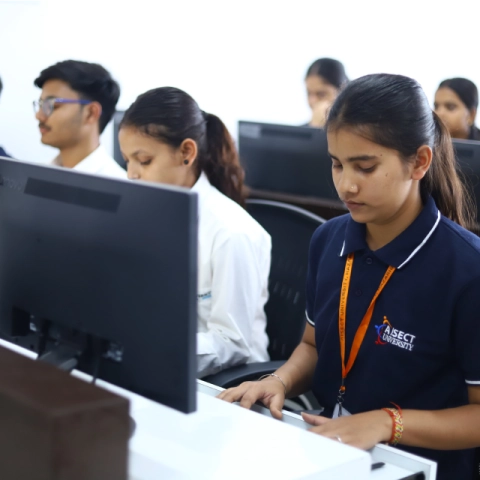The MCA program at AISECT University is thoughtfully designed to provide students with advanced knowledge and skills in computer science and software development. The curriculum offers a comprehensive blend of theoretical concepts and practical training, focusing on modern programming languages such as Java, Python, and C#. Students also explore emerging technologies including cloud computing, artificial intelligence, and machine learning. Emphasis is placed on using industry-relevant tools and software to prepare students for real-world challenges. The program includes project work, internships, and hands-on labs to enhance technical expertise. It aims to develop problem-solving abilities, critical thinking, and innovation. Overall, the MCA program equips graduates to excel in competitive IT roles and pursue research or entrepreneurial ventures.
Duration of programme
Level of Study

Core programming languages
Operating Systems
Database Management System
Data Structure and Algorithms
Bachelor’s degree in Computer Science / BCA / B.Sc. (IT)
any equivalent with Mathematics at 10+2 or Graduation level